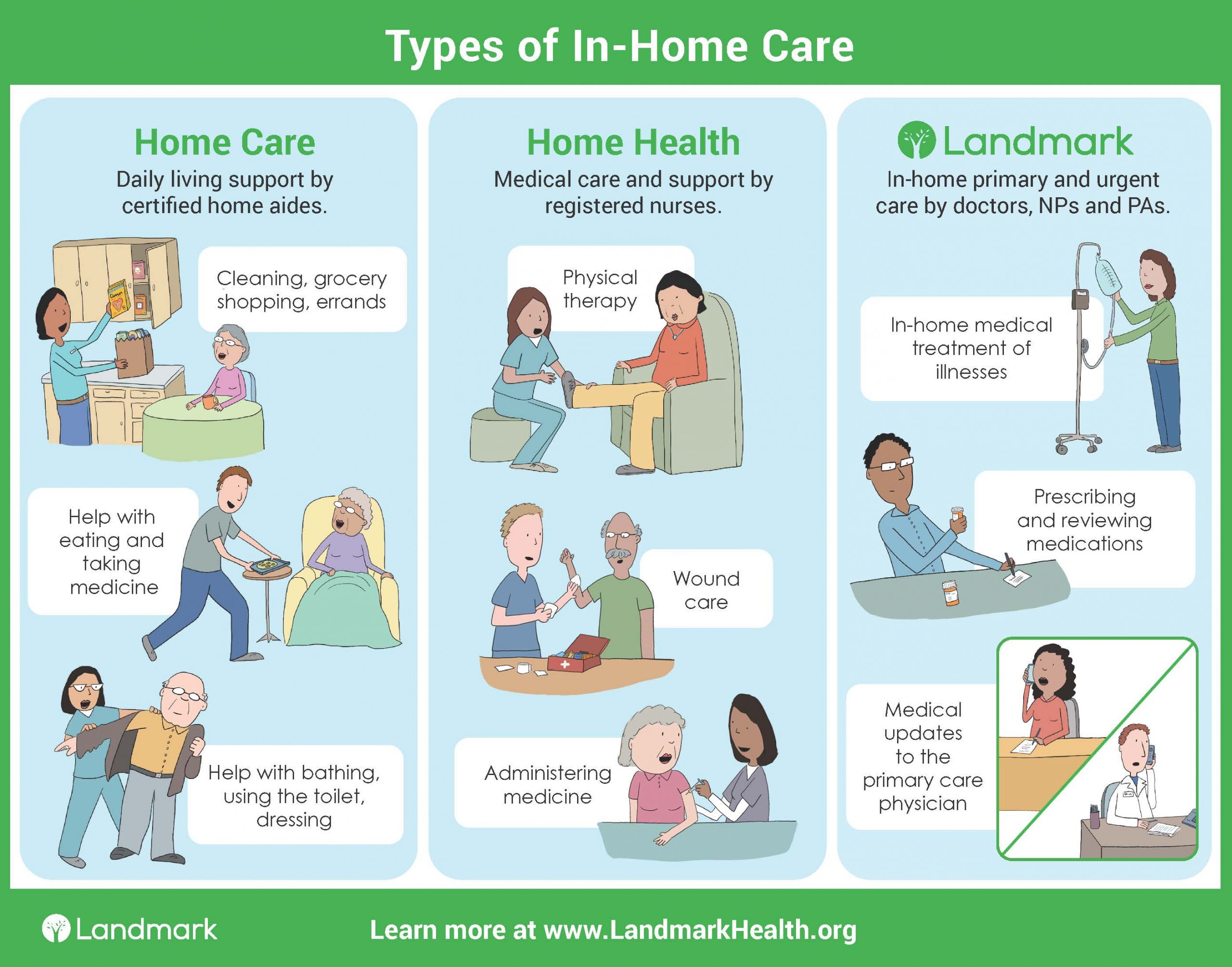Home-Based Care and the Need for Health Insurance Integration: A Comprehensive Guide
Delving into the realm of Home-Based Care and the Need for Health Insurance Integration, this piece sets the stage for an enlightening exploration filled with crucial insights and practical advice.
Exploring the facets of Home-Based Care and the critical link to health insurance integration is essential for understanding the evolving landscape of healthcare.
Understanding Home-Based Care

Home-based care refers to healthcare services provided to individuals in the comfort of their own homes. This type of care is designed to help patients recover from illness, manage chronic conditions, or receive assistance with daily activities without the need for hospitalization.One of the key benefits of home-based care is that it allows patients to remain in a familiar and comfortable environment, which can contribute to better overall health outcomes.
Patients often experience reduced stress and anxiety levels when receiving care at home, leading to improved recovery rates and quality of life.
Services Provided in Home-Based Care
- Medical monitoring and management of chronic conditions
- Assistance with activities of daily living, such as bathing, dressing, and meal preparation
- Medication management and administration
- Physical therapy and rehabilitation services
- Palliative care and end-of-life support
Importance of Personalized Care
Home-based care allows healthcare providers to deliver personalized care tailored to the individual needs of each patient. By being in a home setting, providers can better understand the patient's lifestyle, preferences, and challenges, leading to more effective and holistic care.
This personalized approach fosters a stronger patient-provider relationship and promotes better health outcomes in the long run.
Importance of Health Insurance Integration

Home-based care plays a crucial role in providing necessary medical assistance to individuals in the comfort of their own homes. Integrating health insurance with home-based care is essential to ensure that individuals have access to quality care without facing financial barriers.
Challenges in Accessing Insurance for Home-Based Care
Individuals often face challenges when seeking insurance coverage for home-based care services. Some common obstacles include limited coverage options, high out-of-pocket costs, and restrictions on the types of services covered. This can make it difficult for individuals to afford the care they need in their home environment.
Benefits of Insurance Coverage for Home-Based Care
Having health insurance coverage that includes home-based care services can significantly improve access to quality care for individuals. Insurance plans that support home-based care can help cover the costs of skilled nursing, physical therapy, occupational therapy, and other essential services provided at home.
This ensures that individuals can receive the care they need without having to worry about the financial burden.
Examples of Insurance Plans Supporting Home-Based Care
Medicare
Medicare covers home health services for eligible individuals, including skilled nursing care, therapy services, and personal care.
Medicaid
Some Medicaid programs offer coverage for home-based care services, such as personal care assistance and home health aides.
Private Insurance
Many private insurance plans offer optional home-based care benefits or long-term care insurance that covers services provided in the home setting.
Addressing Gaps in Current Health Insurance Policies

Health insurance policies often have gaps when it comes to covering home-based care services, leaving individuals in need vulnerable to high out-of-pocket costs. These gaps can significantly impact the quality of care and access to essential services for patients requiring home-based care.
Identifying Gaps in Health Insurance Coverage
- Limitations on the types of home-based care services covered, such as restrictions on the number of visits or duration of care.
- Lack of coverage for certain specialized home healthcare professionals, like occupational therapists or speech therapists.
- High copayments or deductibles that make home-based care unaffordable for many individuals.
Impact of Gaps on Individuals Needing Home-Based Care
- Delayed or inadequate care due to financial barriers, leading to worsened health outcomes.
- Increased stress and burden on family caregivers who may have to cover the costs of care out-of-pocket.
- Lack of continuity in treatment plans, resulting in fragmented care and potential medical complications.
Solutions to Bridge the Divide
- Advocate for policy changes to expand coverage of home-based care services under health insurance plans.
- Implement initiatives to educate patients and caregivers about available insurance benefits for home-based care.
- Encourage collaboration between insurance providers and home healthcare agencies to streamline coverage and reimbursement processes.
Success Stories of Integration
- Introduction of pilot programs that demonstrate the cost-effectiveness and positive outcomes of integrating insurance coverage for home-based care.
- Partnerships between insurance companies and healthcare providers to develop innovative payment models that support comprehensive home healthcare services.
- Increased access to home-based care for vulnerable populations through expanded insurance coverage, leading to improved health outcomes and patient satisfaction.
Enhancing Affordability and Accessibility
Ensuring that home-based care is affordable and accessible to patients is crucial for improving overall healthcare outcomes. By exploring ways to make these services more cost-effective and readily available, we can empower individuals to receive the care they need in the comfort of their own homes.
Role of Insurance in Improving Accessibility
Health insurance plays a significant role in improving the accessibility of home-based care services. By covering the costs associated with home visits, medical equipment, and skilled nursing care, insurance providers can help patients access these essential services without facing financial barriers.
Comparing Insurance Models for Affordable Home-Based Care
- Medicare: Medicare provides coverage for home health services for eligible beneficiaries, including skilled nursing care, physical therapy, and medical social services.
- Medicaid: Medicaid offers coverage for home-based care services for low-income individuals, including personal care assistance, home health aides, and medical supplies.
- Private Insurance: Many private insurance plans offer coverage for home-based care services, but the extent of coverage may vary depending on the plan and provider.
Tips for Individuals Seeking Insurance Coverage
- Educate Yourself: Understand the specific home-based care services that are covered by your insurance plan.
- Check Eligibility: Make sure you meet the criteria for coverage under your insurance plan for home-based care services.
- Review Costs: Determine any out-of-pocket expenses, copayments, or deductibles associated with home-based care services under your insurance plan.
- Consult Providers: Seek guidance from healthcare providers or insurance representatives to clarify coverage details and explore options for affordable care.
Conclusive Thoughts
In conclusion, the integration of health insurance with home-based care presents a promising path towards enhancing patient care, accessibility, and affordability. This discussion sheds light on the pivotal role insurance plays in shaping the future of healthcare delivery.
Common Queries
What is home-based care?
Home-based care refers to medical and non-medical services provided to individuals in their homes, allowing them to receive care in a familiar and comfortable environment.
Why is integrating health insurance with home-based care crucial?
Integrating health insurance with home-based care is crucial to ensure that individuals have access to necessary medical services without facing financial burdens.
How can insurance coverage improve access to quality care at home?
Insurance coverage can enhance access to quality care at home by covering services such as skilled nursing, therapy, and assistance with daily activities.
What are some examples of insurance plans that support home-based care services?
Medicare and certain Medicaid programs offer coverage for home-based care services, providing financial support for individuals in need.
How can we make home-based care more affordable for patients?
Exploring insurance models that prioritize affordability and advocating for policy changes to expand coverage can help make home-based care more affordable for patients.
